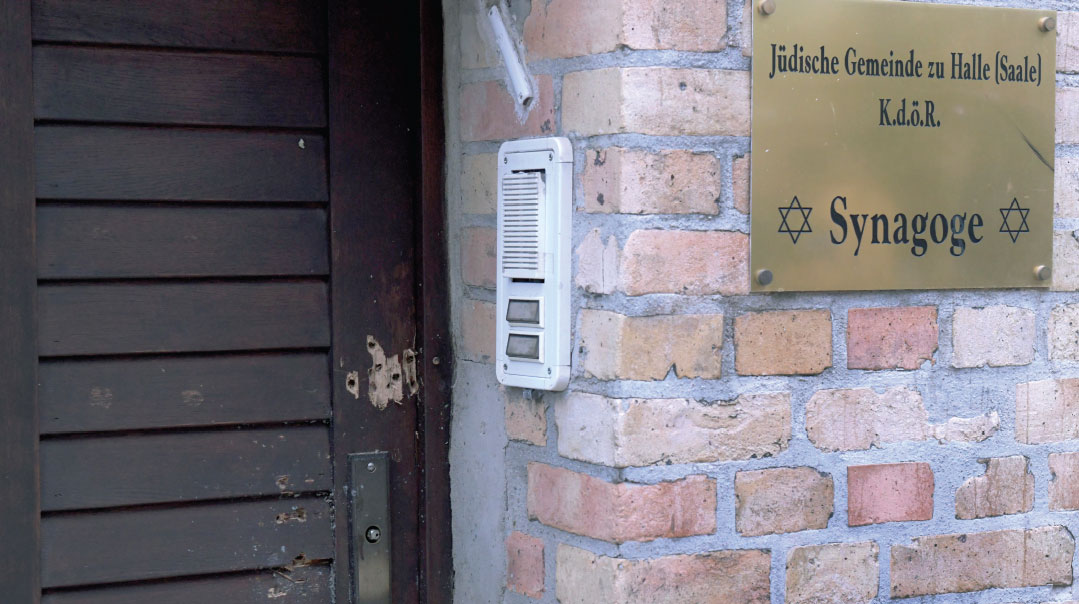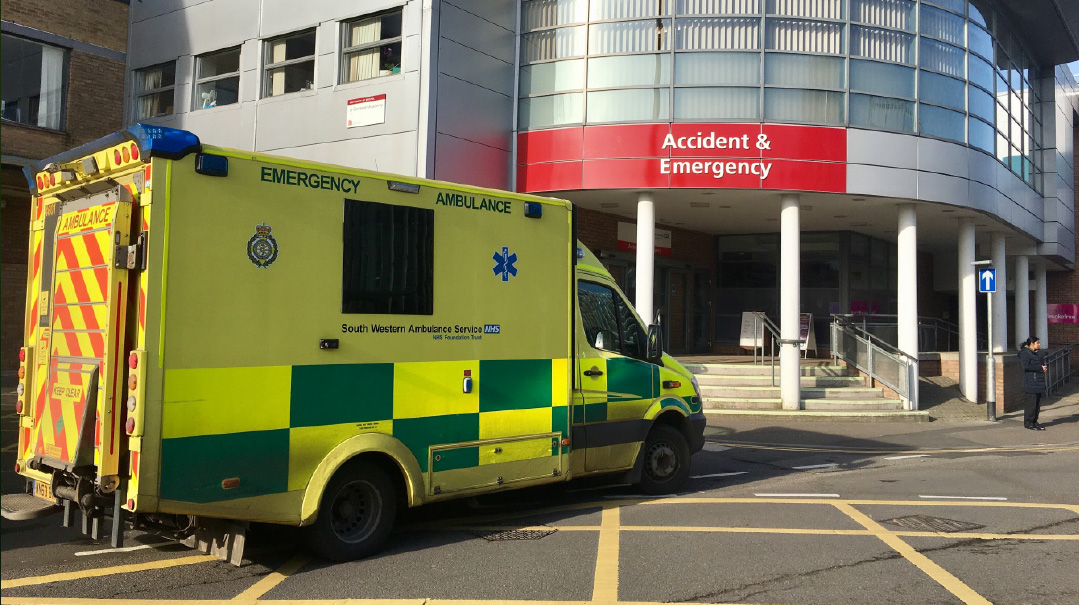Yom Kippur Terror in Germany

Jewish communities in Halle and across Germany are going to be behind barricades and heavily-armed police for a long-time to come

A Nazi opening fire on a shul in Germany sounds like something out of the 1930s. But a far-right attack on a synagogue in Germany’s east on Yom Kippur 2019, coming soon after a knife-wielding Syrian refugee tried to enter a Berlin shul, has raised questions about modern Germany’s ability to deal with the resurgence of far-right and Muslim extremism.
At about noon on Yom Kippur, a helmet-clad neo-Nazi tried to enter the synagogue in Halle, the fifth-largest city in the former East Germany. Livestreaming his attack on social media, he repeatedly tried to shoot the barricaded door, and killed a passerby before continuing his rampage in a nearby kebab store, where he killed a patron. Two others were seriously injured.
“The first thing we knew of the attack was when we heard a loud bang, of homemade Molotov cocktails going off,” said Berlin-based Mollie Sharfman. “As soon as we realized what was happening, the chazzan, Yossel Remis, told everyone to run to the back of the shul, and no one was injured. It was a miracle that the door was closed.”
Sharfman, who works for Educating for Impact, a Lauder Foundation affiliate that works to strengthen Jewish communities across Europe, was part of a group of young people who had come to the small community for Yom Kippur. “The local community contains many older Russian-speakers from the former Soviet Union and some younger people, and there was a group of young professionals from Berlin there. We were all very shaken, and people really connected to the Mussaf.”
The police only gave the all-clear hours later, toward the end of Yom Kippur, by which time Jewish communities all over Germany were on alert. Gadi Gronich, a Munich-based official for the Conference of European Rabbis, says that the community there was apprehensive. “There were noticeably fewer people in the synagogue for Neilah than normal — probably because of the attack.”
The Yom Kippur attack came days after a knife-wielding Syrian refugee attempted to enter a synagogue in Berlin, shouting “Allahu Akbar.” The two attacks highlight the twin threats of anti-Semitism from Germany’s far-right and Muslim populations. A recent report from the country’s Interior Ministry said that of the estimated 24,000 far-right extremists known to security services, half were thought to be prepared to use violence.
But the fact that the Berlin attacker was released — causing outrage in the local Jewish community — calls into question whether the German authorities have the tools or the will to deal with terror from both sides of the spectrum.
Rabbi Pinchas Goldschmidt, president of the Conference of European Rabbis, sees the rise in both threats as a failure of political will on the part of German authorities. “Legal tools exist to deal with both threats,” he said, “and if they don’t, they can be created. Much more can be done at all levels — legal, police, civil society. The fact that the Muslim attacker in Berlin was released is a major failure.”
The context of the Halle attack, he says, is the political rise of the far-right, particularly in East Germany. “The anti-refugee Alternative for Germany party (AfD) condemned the Yom Kippur attack, but they say that Germany should stop apologizing for the Holocaust after 70 years. Holocaust denial is always linked to anti-Semitism.”
Going forward, said Rabbi Goldschmidt, it’s important not to get used to this new normal of a fearful Jewish community. “We want to see a Germany in which any Jewish person can walk anywhere with a kippah; where synagogues can be open without machine-gun armed police. This new reality is a great test for the government.”
But after this Yom Kippur, this seems like a distant wish. Jewish communities in Halle and across Germany are going to be behind barricades and heavily-armed police for a long-time to come.
(Originally featured in Mishpacha, Issue 782)
Oops! We could not locate your form.













